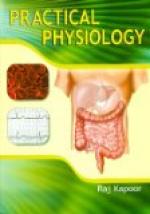247. Rules and Precautions in Bathing. Bathing in cold water should not be indulged in after severe exercise or great fatigue, whether we are heated or not. Serious results have ensued from cold baths when the body is in a state of exhaustion or of profuse perspiration. A daily cold bath when the body is comfortably warm, is a safe tonic for almost all persons during the summer months, and tends especially to restore the appetite. Cold baths, taken regularly, render persons who are susceptible to colds much less liable to them, and less likely to be disturbed by sudden changes of temperature. Persons suffering from heart disease or from chronic disease of an important organ should not indulge in frequent cold bathing except by medical advice. Owing to the relaxing nature of hot baths, persons with weak hearts or suffering from debility may faint while taking them.
Outdoor bathing should not be taken for at least an hour after a full meal, and except for the robust it is not prudent to bathe with the stomach empty, especially before breakfast. It is a wise rule, in outdoor or sea bathing, to come out of the water as soon as the glow of reaction is felt. It is often advisable not to apply cold water very freely to the head. Tepid or even hot water is preferable, especially by those subject to severe mental strain. But it is often a source of great relief during mental strain to bathe the face, neck, and chest freely at bedtime with cold water. It often proves efficient at night in calming the sleeplessness which results from mental labor.
Hot baths, if taken at bedtime, are often serviceable in preventing a threatened cold or cutting it short, the patient going immediately to bed, with extra clothing and hot drinks. The free perspiration induced helps to break up the cold.
Salt water acts more as a stimulant to the skin than fresh water. Salt-water bathing is refreshing and invigorating for those who are healthy, but the bather should come out of the water the moment there is the slightest feeling of chilliness. The practice of bathing in salt water more than once a day is unhealthful, and even dangerous. Only the strongest can sustain so severe a tax on their power of endurance. Sea bathing is beneficial in many ways for children, as their skin reacts well after it. In all cases, brisk rubbing with a rough towel should be had afterwards.
[Illustration: Fig. 106.—Magnified Section of the Lower Portion of a Hair and Hair-Follicle.
A, membrane of the hair-follicle, cells
with nuclei and pigmentary
granules;
B, external lining of the root sheath;
C, internal lining of the root sheath;
D, cortical or fibrous portion of the
hair shaft;
E, medullary portion (pith) of shaft;
F, hair-bulb, showing its development
from cells from A.
]
The golden rule of all bathing is that it must never be followed by a chill. If even a chilliness occur after bathing, it must immediately be broken up by some appropriate methods, as lively exercise, brisk friction, hot drinks, and the application of heat.




